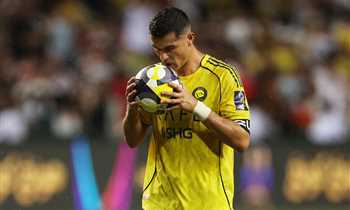Analysis: Do Egypt need a tactical change for Guinea?
الأحد، 03 يونيو 2012 - 13:58
كتب : Omar AbdelAziz
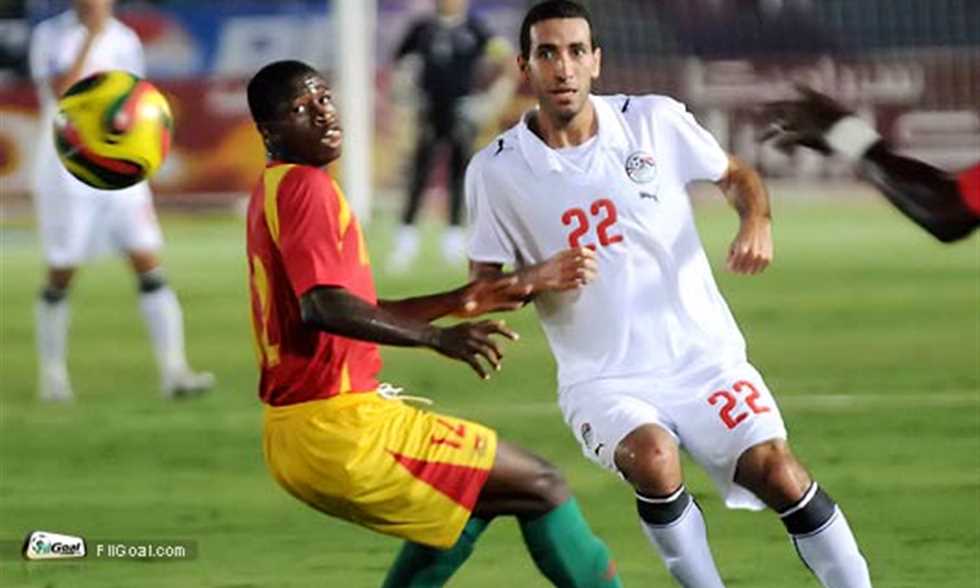
Bradley plotted a 4-3-3 formation to beat Mozambique 2-0 in the World Cup qualifiers opener, securing a rare victory for Egypt with four men at the back.
The Mozambique game - hardly a contest - witnessed some other tactical measures including a Barcelona-like frontline with no advanced striker to spearhead attack.
Let’s see if a new strategy is needed for the Guinea visit or should Bradley stick with his 4-3-3 attacking formation.
The back four
Egypt relied on Ahmed Hegazi and Mahmoud Fathallah as two central defenders against Mozambique and the duo played a vital role in the opening goal that paved way for victory.
However - and despite their undoubted aerial ability - the heavy pairing of Hegazi and Fathallah could struggle with pace against quick forwards; a threat that Mozambique could hardly pose in Cairo.
But in Guinea there will be Ismael Bangoura and Sadio Diallo plus pacey wingers Ibrahima Traore and Abdoul Camara.
If we wind the clock back two years to review how Egypt’s heart of defense - mainly led by Fathallah and Wael Gomaa - had performed under Hassan Shehata, some names will surely be remembered.
South Africa’s Katlego Mphela, Niger’s Moussa Maazou and Sierra Leone’s Mohamed Bangura are typical African forwards who have all succeeded in tormenting the Egypt backline, eventually leading to a shock and unprecedented CAN 2012 failure.
Now looking at the full-backs, we can say that Ahmed Elmohamady and Mohamed Abdul-Shafi are more like wing-backs with an attack-minded mentality.
So unless the duo is assured of providing adequate defensive cover throughout the 90 minutes in Conakry, Egypt could be punished from Bangoura and Co.
Midfield
Hosni Abd-Rabou is irreplaceable in the middle of the park for Egypt as Bradley put his faith in youngster Mohamed Al-Nenni and talisman Mohamed Abou-Treika to provide the defense-attack balance.
Al-Nenni is a fine passer while Abou-Treika is classy when it comes to creating chances and linking up with the forwards in the final third.
So it was clear that Bradley opted for a short-passing approach against Mozambique, attempting to work the ball into the box for attack trio Geddo, Ahmed Temsah and Mohamed Salah.
But the pitch at the Stade du 28 Septembre in Conakry is unlikely to be the same as the Army Stadium in Alexandria, which might suggest that short passing could be tricky.
The final third
The trio of Geddo, Salah and Temsah were clearly given much creative freedom to move out of position as Egypt played 90 minutes without an advanced forward in the Mozambique game.
Emad Meteb and Ahmed Mekki remained as unused subs while central midfielders Ashour Al-Taqui and Ibrahim Salah came on to play behind deep-lying forward Mohamed Zidan.
It was a successful attempt from Bradley to maintain possession in midfield, but the Pharaohs could be facing a totally different scenario in the away game in Conakry.
Using a target man like Meteb or Mekki to ensure more presence in the final third is an option for Bradley, one that could force him change style of play.
Finally, the possible presence of veteran center-half Bobo Balde - who is anything but quick - at the heart of Guinea’s defense could be exploited in a way or another by Egypt’s American tactician.
نرشح لكم

 مصدر مقرب من جاك مبي لـ في الجول: هناك مفاوضات مع الاتحاد السكندري للانضمام إليه
مصدر مقرب من جاك مبي لـ في الجول: هناك مفاوضات مع الاتحاد السكندري للانضمام إليه

 خبر في الجول - 3 أسماء في قائمة المرشحين لتدعيم دفاع الأهلي
خبر في الجول - 3 أسماء في قائمة المرشحين لتدعيم دفاع الأهلي

 خبر في الجول - ثنائي زد يقترب من الانتقال لـ الاتحاد السكندري
خبر في الجول - ثنائي زد يقترب من الانتقال لـ الاتحاد السكندري
 هاني سعيد يكشف موعد انضمام حامد حمدان لـ بيراميدز.. وموقف تجديد ماييلي
هاني سعيد يكشف موعد انضمام حامد حمدان لـ بيراميدز.. وموقف تجديد ماييلي
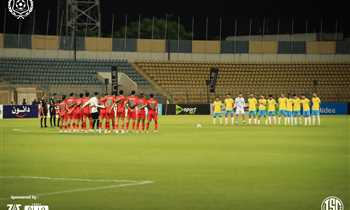 كأس عاصمة مصر - مودرن بـ 10 لاعبين يعود بنقطة من ملعب الإسماعيلي
كأس عاصمة مصر - مودرن بـ 10 لاعبين يعود بنقطة من ملعب الإسماعيلي
 كأس عاصمة مصر - موعد مباراة الزمالك ضد زد.. والقناة الناقلة
كأس عاصمة مصر - موعد مباراة الزمالك ضد زد.. والقناة الناقلة
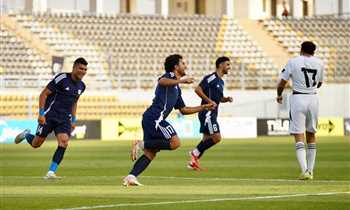
 خبر في الجول - خطوة من إنبي مع مودي ناصر بعد رفضه التجديد
خبر في الجول - خطوة من إنبي مع مودي ناصر بعد رفضه التجديد
 كأس عاصمة مصر - الجونة يرتقي للصدارة بهدف ضد دجلة
كأس عاصمة مصر - الجونة يرتقي للصدارة بهدف ضد دجلة















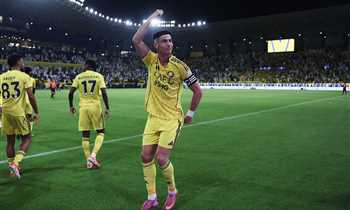
 مباشر الدوري السعودي - أهلي جدة (2)-(2) النصر.. بداية الشوط الثاني
مباشر الدوري السعودي - أهلي جدة (2)-(2) النصر.. بداية الشوط الثاني
